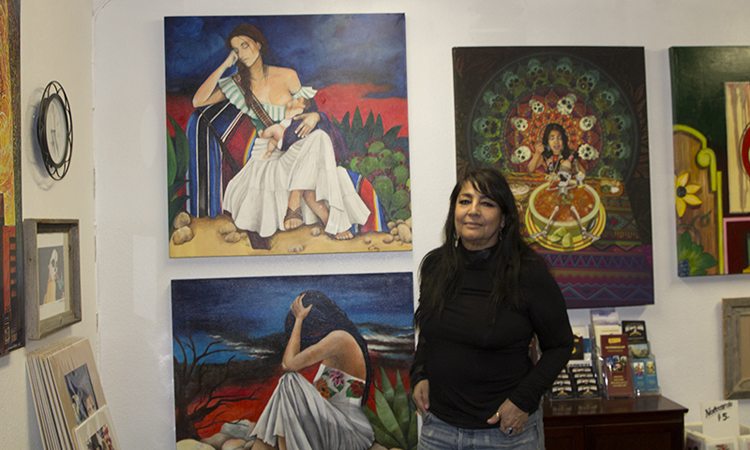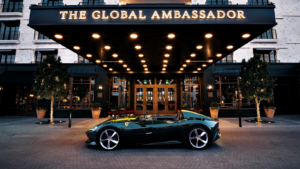The Arizona Latino Arts & Cultural Center advocates and mentors local artists in Metro Phoenix. Lately, though, the nonprofit has been struggling to keep its doors open, as grants and funding continue to overlook it.
“Right now, we make our own funding,” said Jose Andres Giron, a resident artist at the center, which is known by the acronym ALAC. “We create workshops, we cater events and we create sales out of our work. Art, music, performing arts – all of them, it’s a tough business. If someone doesn’t fund it, you have to self-fund.”
Giron, who has been volunteering at the center’s store, La Tiendita, since ALAC opened at Second and Adams streets in 2009, said volunteers don’t stick around for long.
“Volunteers come and go, so it’s very difficult to stay on top of things,” he said. “Sometimes we get a lot of support, other times it dies down.”
With few volunteers and little funding, Giron said it’s difficult to keep the center open.
“Last year, we didn’t get the grants we applied for. We were left without money to operate,” he said.
Despite the financial hardships, Giron said the center’s team has remained strong.
“When it gets tough,” he said, “you can say, ‘I don’t have any funding,’ cry and close up, or you could stick to it and do it with volunteers. It’s very difficult, but it can be done. We keep it going, keep it strong.”
Giron said he has remained at the center because of the cultura (culture) behind it.
“It’s about keeping our art alive,” he said. “Letting the public see our art and creating opportunities for us to show off our beautiful culture, that’s what it’s all about. That’s why I’m still here; I’ve been here since the beginning.”
Elizabeth Toledo, director of ALAC, said though it’s a lot of work, it’s very rewarding to keep the center running.
“We’ve pulled through because we can’t let it go. We can’t let the doors close,” Toledo said. “This is the only Latino art center in this area. We just can’t let it go. We work really hard together.”
The center struggles most during summer, Toledo said.
“During convention season, which is from September to May, we get a lot of foot traffic,” she said. “But the summer is dead. When it’s hot outside, I don’t even get the locals out.”
Like Giron, Toledo said ALAC is essential in the community because it showcases culture.
“It’s important for the community,” she said. “One of our things is to promote the local artists, but it’s also to promote and to teach and make people aware of the cultures.”
Piersten Doctor, 24, a Navajo artist mentored by Giron, said ALAC helped him tune into his culture.
“What I’ve taken from coming here is it’s helped me reflect upon myself,” Doctor said. “It’s helped me reflect upon my culture as a Navajo. It helped me discover it.”
If ALAC were to shut its doors because of insufficient funds, the community would be crestfallen and up in arms, Doctor said.
“People would be in an uproar, honestly, if they found out ALAC was closing,” he said. “A lot of local artists would get mad.”
Doctor has been volunteering at ALAC and displaying his artwork there for the past 2½ years, and he still has a lot more to give to the center.
“This place has done a lot for me, and I really don’t want to see it close down. I love this place.”




